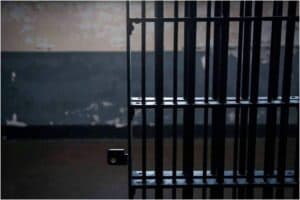The law will now go to the Senate.

Zimbabwe’s parliament approved a controversial law that ostensibly promotes patriotism but has been denounced by the opposition as a “draconian” attempt to stifle dissent ahead of national elections.
The bill, passed by the lower house on Wednesday evening, criminalises acts that damage “the sovereignty and national interest” of the southern African country.
In the most extreme cases, violators run the risk of up to 20 years in prison.
Free speech in Zimbabwe
“Free speech is now dead,” prominent journalist and activist Hopewell Chin’ono wrote on Twitter, adding it was “a very sad day for Zimbabwe.”
The lawwas approved just hours after the government, ending months of uncertainty, announced nationwide elections for August 23.
Analysts are bracing for a tense ballot in a country where discontent at entrenched poverty, power cuts and other shortages runs deep.
ALSO READ: Zimbabwe general elections set for 23 August
Joseph Chinotimba, a lawmaker from the ruling ZANU-PF party told parliament the new law aimed to encourage Zimbabweans to be “patriotic”.
“This Bill is not meant to curtail the existence of political parties but it is there to encourage the people of Zimbabwe to love their country and stop denouncing it,” Chinotimba said.
Draconian law
But opponents said it bans any criticism of the government at a time where rights groups and opposition parties are already complaining of a clampdown.
“Let history be known that I was not part of this commotion and circus,” opposition lawmaker Temba Mliswa told parliament before getting kicked out.
ALSO READ: Night-time shopping booms as Zimbabwe inflation soars
The law will now go to the Senate.
It will then need to be approved by President Emmerson Mnangagwa — something Zimbabwe Human Rights NGO Forum director, Musa Kika, said was all but granted.
“This bill is the most draconian law that we have seen in Zimbabwe,” Kika told AFP.
Eighty-year-old Mnangagwa, who replaced strongman ruler Robert Mugabe in 2017 after a military-led coup, is seeking a second term in August.
His main challenger is Nelson Chamisa, a 45-year-old lawyer and pastor, who leads the recently formed Citizens Coalition for Change (CCC) party and narrowly lost to Mnangagwa in 2018.
ALSO READ: Life in Zimbabwe: If only we would speak out and stand together






